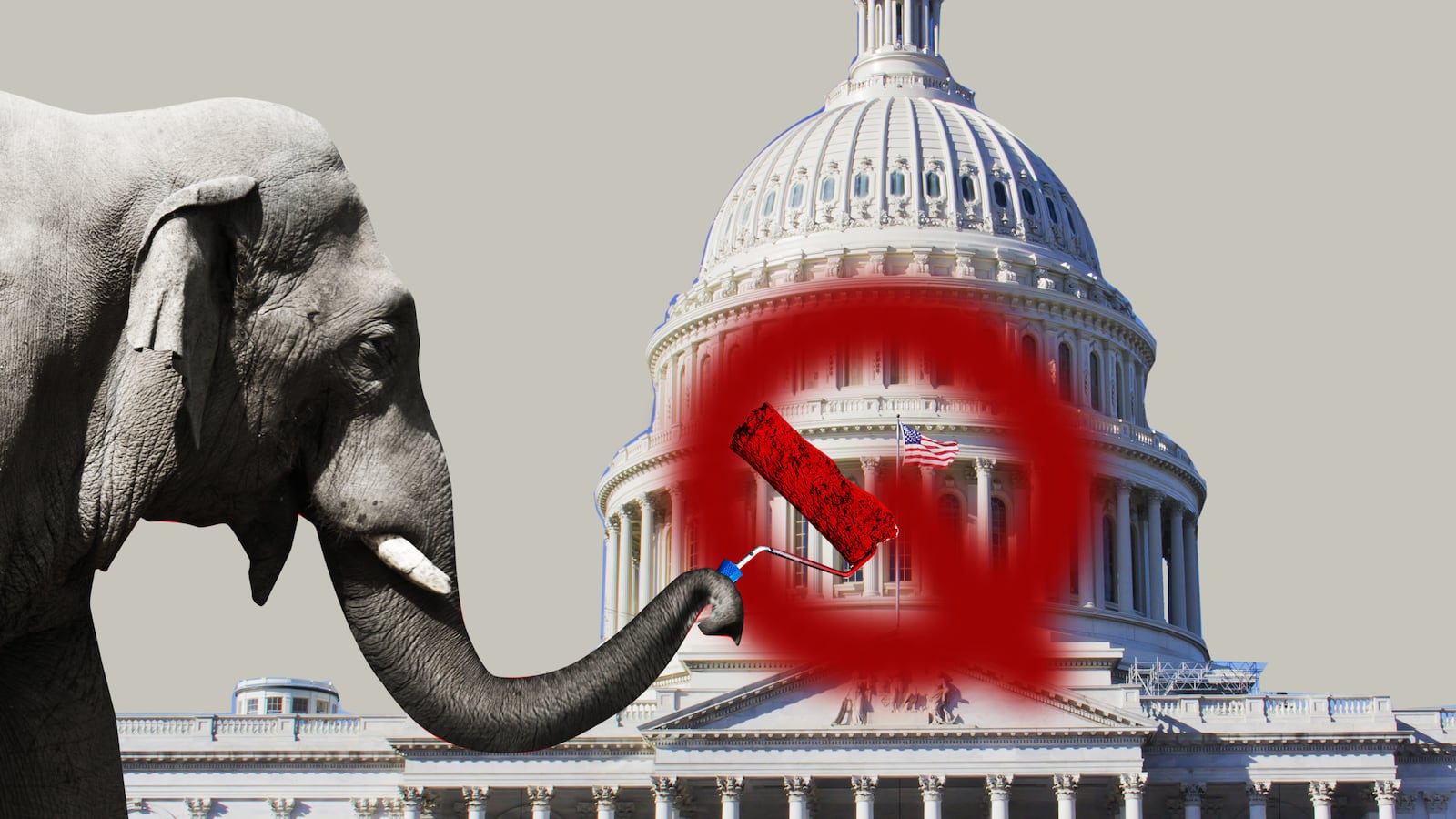Seventeen Republican lawmakers declined on Friday to support a measure in the House of Representatives that condemned the pro-Trump QAnon movement as a “collection of unfounded conspiracy theories.”
The resolution, which passed nearly unanimously, urged the FBI and intelligence agencies to focus on the threats from fringe conspiracy groups, which have grown in mass as the election has neared. All told, 371 members voted in favor of the resolution—including 225 Democrats and 146 Republicans—and 18 members voted against it. Of those 18, 17 were Republican and one was an independent: Rep. Justin Amash, a libertarian from Michigan.
The resolution, which doesn’t carry any legal force, comes as Republican House nominee and Georgia QAnon believer Marjorie Taylor Greene is poised to win a seat in the chamber in November.
The conspiracy theory, which the FBI considers a potential source of domestic terrorism, has allegedly inspired murders, a terrorist incident, and multiple child kidnappings. But President Donald Trump has praised its adherents, who believe he’s engaged in a shadow war against a pedophile-cannibal cabal of Satanists that controls the world. In August, Trump called them “people that love our country.”
The resolution condemning QAnon was cosponsored by two Democrats and three Republicans. One of the resolution’s Republican cosponsors, Rep. Adam Kinzinger (R-IL), was attacked by the Trump campaign after he criticized QAnon, while Democratic cosponsor Rep. Tom Malinowski (D-NJ) has faced death threats from QAnon supporters after a Republican ad falsely accused him of supporting pedophiles.
The 17 Republicans who voted against the bill were Jodey Arrington (R-TX), Brian Babin (R-TX), Rob Bishop (R-UT), Mo Brooks (R-AL), Michael Burgess (R-TX), Buddy Carter (R-GA), Warren Davidson (R-OH), Jeff Duncan (R-SC), Drew Ferguson (R-AL), Bill Flores (R-TX), Paul Gosar (R-AZ), Joseph Kelly (R-PA), Steve King (R-IA), Ralph Norman (R-S.C.), Scott Perry (R-PA), Tom Tiffany (R-WI), and Daniel Webster (R-FL)
In a tweet after the vote, Amash defended his opposition to the resolution, saying that its sections urging law enforcement and intelligence agencies to monitor conspiracy theory extremists would only confirm QAnon believers’ fears about a “deep state.”
“The resolution threatens protected speech (absurd as that speech may be), and its prescriptions for addressing QAnon aren’t appropriate for what we know about them & may make things worse,” Amash tweeted.






